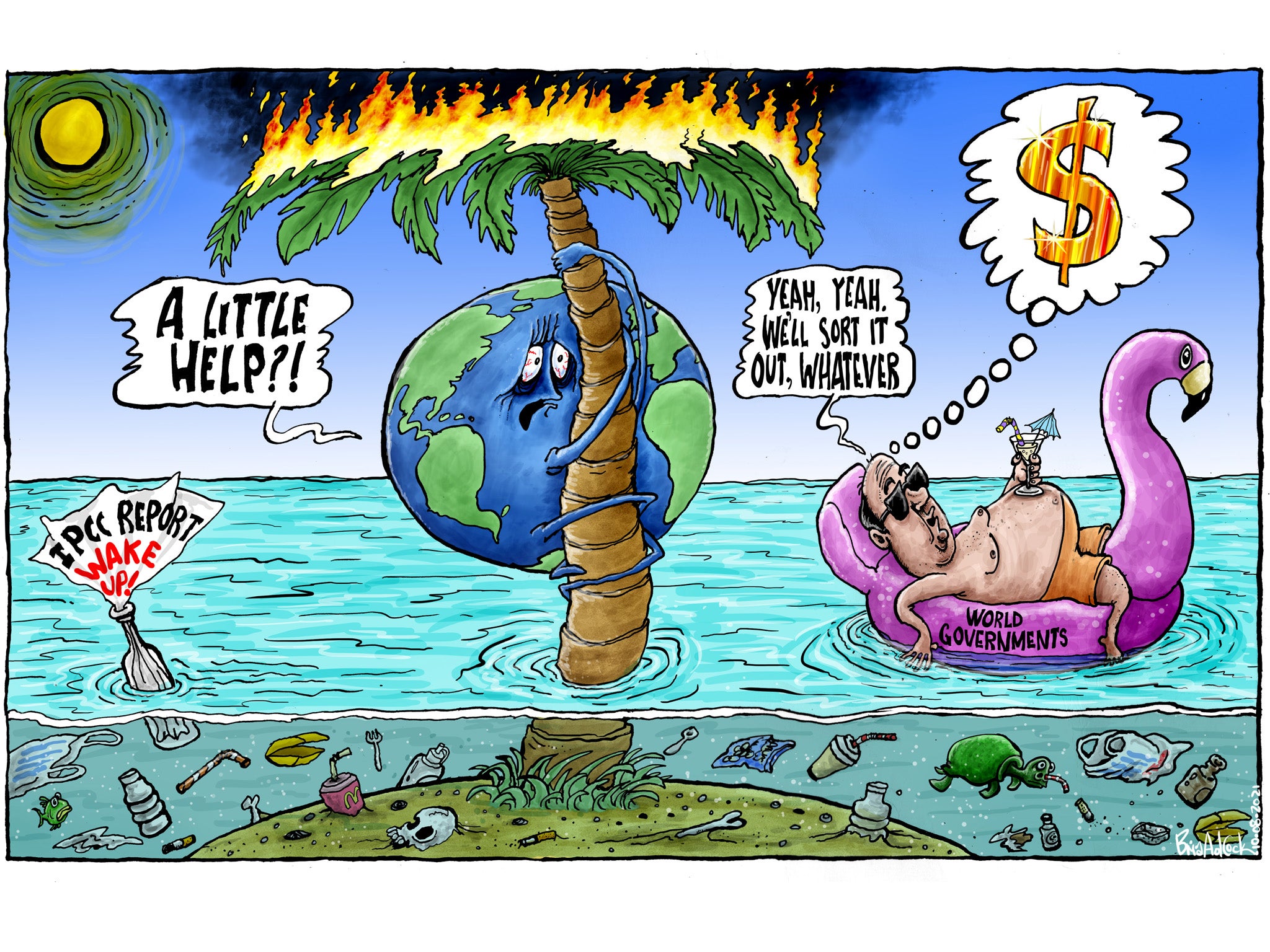A code red for humanity.” That is how the secretary-general of the United Nations, Antonio Guterres, describes the climate crisis in the latest disturbing report on mankind’s failure to save the planet.
The problem is, of course, twofold. First, mankind has failed to pay much heed to the many preceding “code red” alerts about the extinction of life itself. Second, it is already too late to prevent some aspects of the climate crisis resulting in irreversible change in some areas.
That is not to say that on present trends nothing can be done – far from it. Because the temperature of our delicate earth is already about 1.09C above its pre-industrial norms, things will undoubtedly change for the worse for many millions of people. But if the world does nothing, those changes will become still more dangerous and unpredictable. Sea levels, for example, are already rising, and will probably rise further, even with international action. The challenge is to restrain the rise driven by human activity as far as, well, humanly possible. In other words, we have already gone beyond code red.
So the task at the vital Cop26 international climate summit in Glasgow in a few months is to both restrain the speed of climate change – to prevent even worse outcomes than those already “baked in” to the Earth’s climate systems – but also to mitigate the consequences that have already arrived and which will worsen in the short term at least. The oceans will continue to warm and become more acidic. Mountain and polar glaciers will continue melting for decades or centuries.
It’s bad, but it could be even worse, which is why it is still worth having the experts publish these reports and having politicians meeting to try to find a binding agreement.
In the meantime the UN has to also to devote its energies to rescuing the millions in poorer coastal communities such as Bangladesh, while national governments need to frame their own emergency contingency planning for, say, more flooding in western Europe, more intense forest fires in Australia, the Mediterranean region, California, and tropical hurricanes and tsunamis.
The block on effective measures to limit the emission of greenhouse gases is effectively human. In the west we are now seeing how practical, detailed measures to preserve the planet and to preserve the future of life on Earth are being weakened or vetoed by voters fearful that they will hurt their living standards. The “gilet jaunes” in France, the militant Trumpists in the United States, voters in marginal constituencies in Britain concerned about the cost of installing heat pumps and scrapping their gas boilers – all have understandable fears about jobs and livelihoods and simply being able to afford their homes. Who will pay for those new central heating systems? For all the electric cars? For the transformation of farming? Where will families be able to afford to go on holiday?
Their political leaders have failed to persuade them of the urgency of the cause and, more usefully, levelled with them about the costs of adapting to the “new green normal”, if it may be termed that. Even in non-democratic societies, the resistance of people to embrace even marginal discomfort can prevent authoritarian leaders from acting. It is far easier for them to underplay the reality and overplay the notion that the climate crisis is just some foreign plot (and, as Donald Trump showed, such tactics are not confined to the likes of Russia and Brazil).
As the Cop26 summit approaches and world leaders book their “carbon offset” flights (if such things really exist), the diplomats will be redoubling their efforts to find forms of words and engineer new spaces for wriggle room in the no doubt impressive texts and speeches that will flow forth in every language from the conference halls of Glasgow. The pledges might go further then the previous ones at the Copenhagen and Paris summits. Agreement, therefore, on targets and promises is almost preordained. The conference will be a “success” therefore. Action, though, is quite another matter. That requires political leadership and public acceptance of sacrifices. There is no sign of either on the horizon.




Join our commenting forum
Join thought-provoking conversations, follow other Independent readers and see their replies
Comments